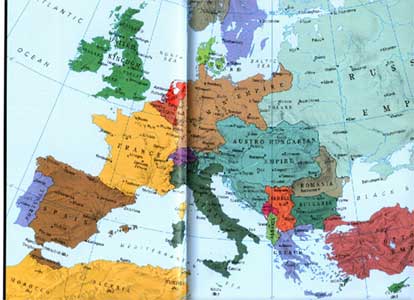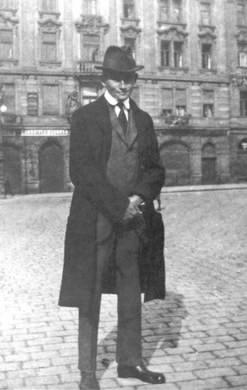
German and Czech Translations
Bürstner (boorwstner) = (similar to) brush
Frau (frow) = woman, Mrs.
Fräulein (froi-leyn) = young woman, Ms.
Herr (hair) = man, Mr.
Grubach (grew bawk)
Joseph K (yosef kah)
Kafka (cough-kah) = crow in Czech
Lanz (lawnz) = lance
Montag (moan-tawg) = Monday
Schuld = guilt or debt
Biography
| Birth/Death |
3 July 1883 in Prague, Bohemia
(now Czech Republic, then Austro-Hungarian Empire) / 3 June 1924 near Vienna, Austria from tuberculosis |
| Appearance | 6 feet, 140-100 pounds, black hair, gray-blue eyes |
| Family |
German-speaking Jewish family,
eldest of four surviving siblings (all sisters), who died in Nazi concentration camps |
| Profession |
Trained as a lawyer, employee
of Workman's Accident Insurance Institute, and later full-time writer |
| Love |
Engaged three times but never
married |
| Famous Works | Metamorphosis
[1912/15] The Judgment [1912/16] The Penal Colony [1914/19] The Trial [1916/25] The Castle [1922/26] Amerika [1912/27] |
| Characteristics |
The term "Kafkaesque" refers to
the absurd entanglements of modern life, including work, bureaucracy, and mechanization. |


